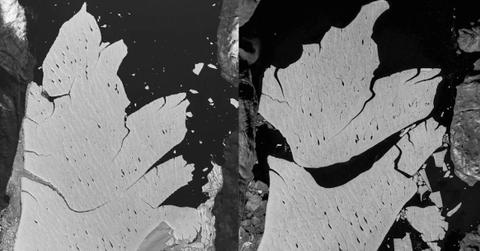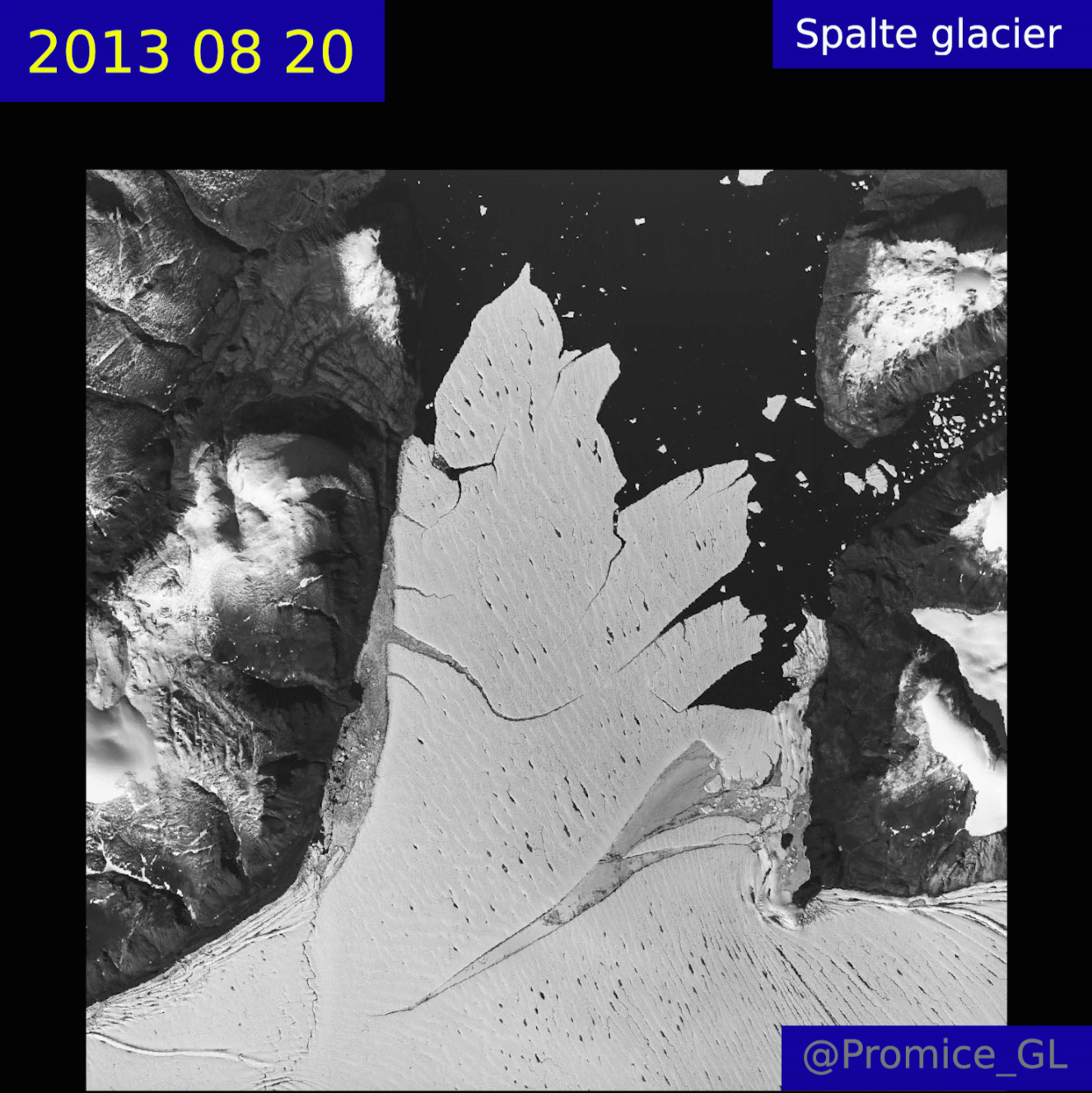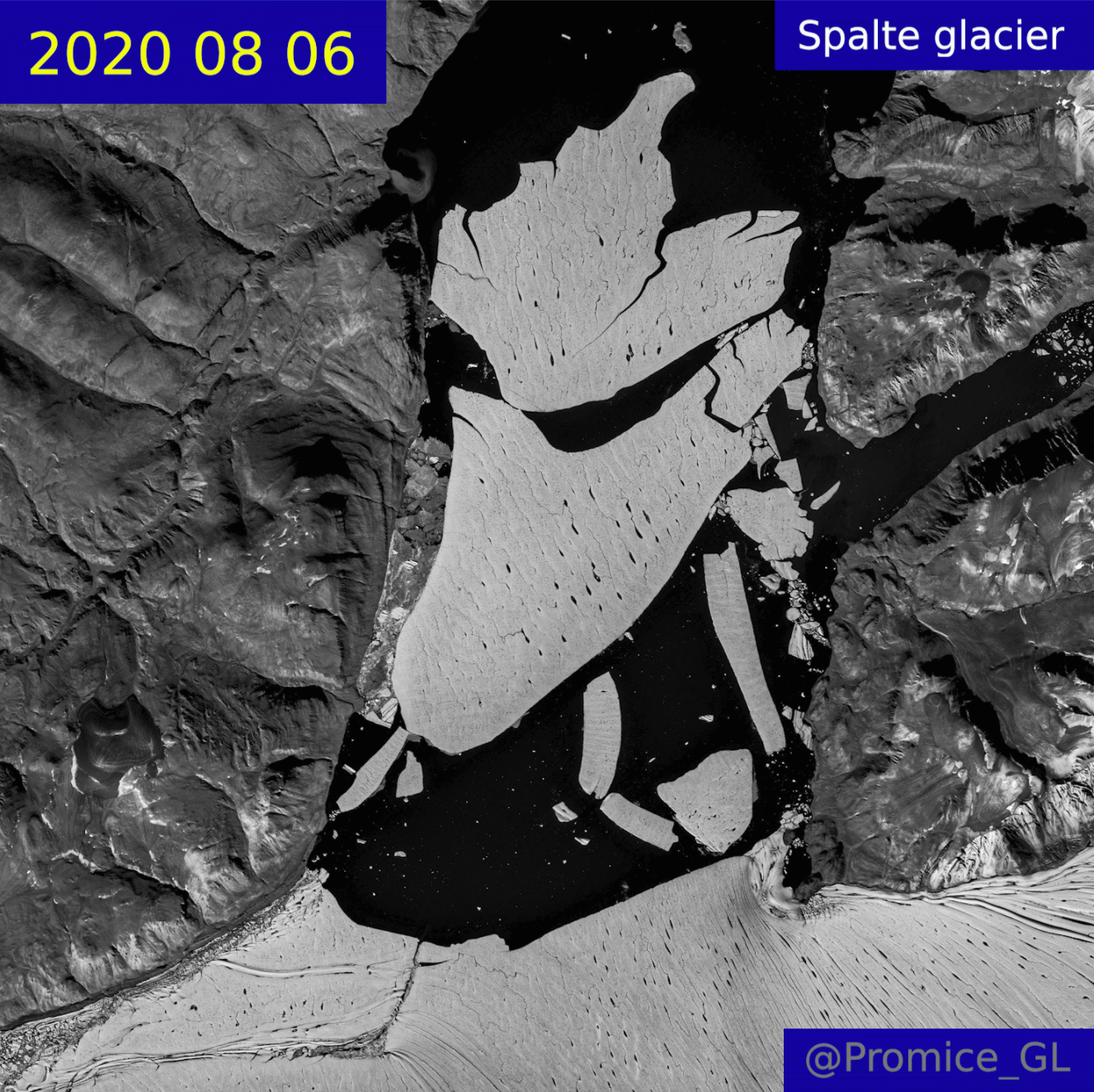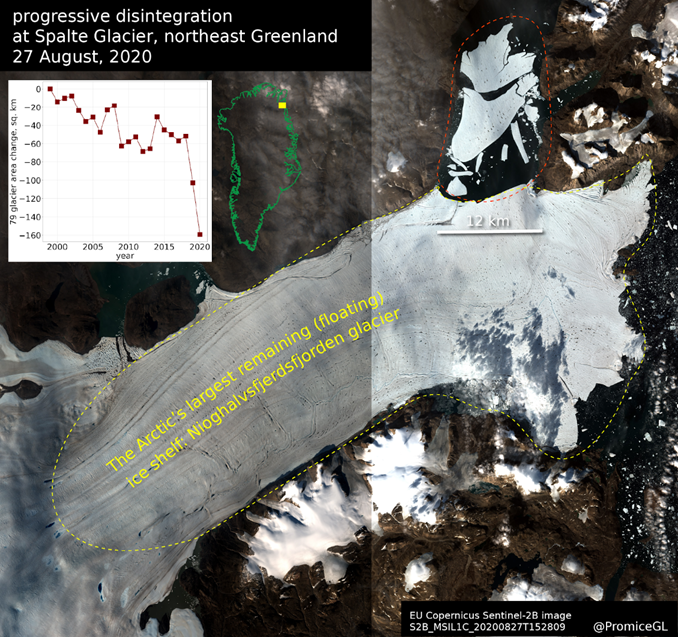The Arctic's Largest Ice Shelf Loses Massive Glacier to the Climate Crisis
This is bad.
Updated Sept. 24 2020, 3:53 p.m. ET

With the climate crisis constantly mounting and global temperatures consistently rising, major ice shelves breaking apart have become all too common — and the latest glacier to calve from an ice shelf is a big one. A 44-square-mile chunk of the Arctic’s largest ice shelf in Northeast Greenland has broken apart and disintegrated — and researchers attribute this incident to increasing temperatures in the Arctic.
The glacier in question is Greenland’s Spalte Glacier, which broke apart from the Nioghalvfjerdsfjorden Glacier (no, that was not a keyboard smash), aka 79N, as recorded by the Geological Survey of Denmark and Greenland (GEUS). GUES has used satellite imagery to record ice melting on 79N over the years, and the images are staggering.
Here's Spalte Glacier in 2013.

And here's Spalte Glacier in August 2020.

An American Meteorological Society study found that the glacier has actually been progressively melting for about 20 years, due to calving episodes near the front of the glacier. According to GEUS, since 1999, the ice shelf has lost 61.7763 square miles of surface — that’s almost twice the size of Manhattan.
But during the summers of 2019 and 2020, record-breaking temperatures in northeast Greenland finally did Spalte Glacier in. It finally broke apart from 79N this summer, and subsequently broke down into chunks, which are now floating in the Arctic, according to Business Insider.
“The atmosphere in this region has warmed by approximately 3°C since 1980 and record-breaking temperatures have been observed in 2019 and 2020”, Dr. Jenny Turton, a researcher at Germany’s FAU, told GUES.
Dr. Niels J. Korsgaard, researcher at GUES, further explained exactly why the Spalte Glacier melted. “When you observe large parts of an ice shelf breaking off you do raise an eyebrow, but with current developments in the Arctic there is also the realization that this is to be expected,” Dr. Korsgaard said in a statement.
“Temperatures in the Arctic are rising faster than the global average," Dr. Korsgaard continued. "More heat is available from air and ocean to melt away the bottom and surface of ice shelves, and the thinning ice shelves are more susceptible to breaking up. We saw this with Zachariae Glacier, this summer with Milne Ice Shelf in Canada, and now Nioghalvfjerdsfjorden Glacier is losing parts of its ice shelf as well.”

As mentioned above, this is not the first time global heating has caused ice shelves to melt. During July 2019, Alaska waters became entirely free of sea ice, as all the ice within 150 miles of Arctic water surrounding Alaska had completely melted. This was primarily attributed to scorchingly hot weather in Alaska that July.
And in August 2019, Iceland’s Okjökull glacier, once located on top of the Ok volcano, completely melted, prompting experts to declare it “dead.” In fact, a funeral was held for the glacier, wherein around 100 people hiked two hours up the volcano to pay their respects.
Even though no one seems to be planning a funeral for Greenland’s Spalte Glacier, it’s still an enormous loss for not only the Arctic, but the entire planet. As explained by National Geographic, when ice sheets and glaciers melt, they become water (duh) — but what’s not so obvious is that all that extra water contributes to rising sea levels. Additionally, the ice melts into freshwater, which can negatively impact the saltwater ocean’s ecosystem and the animals that inhabit it.